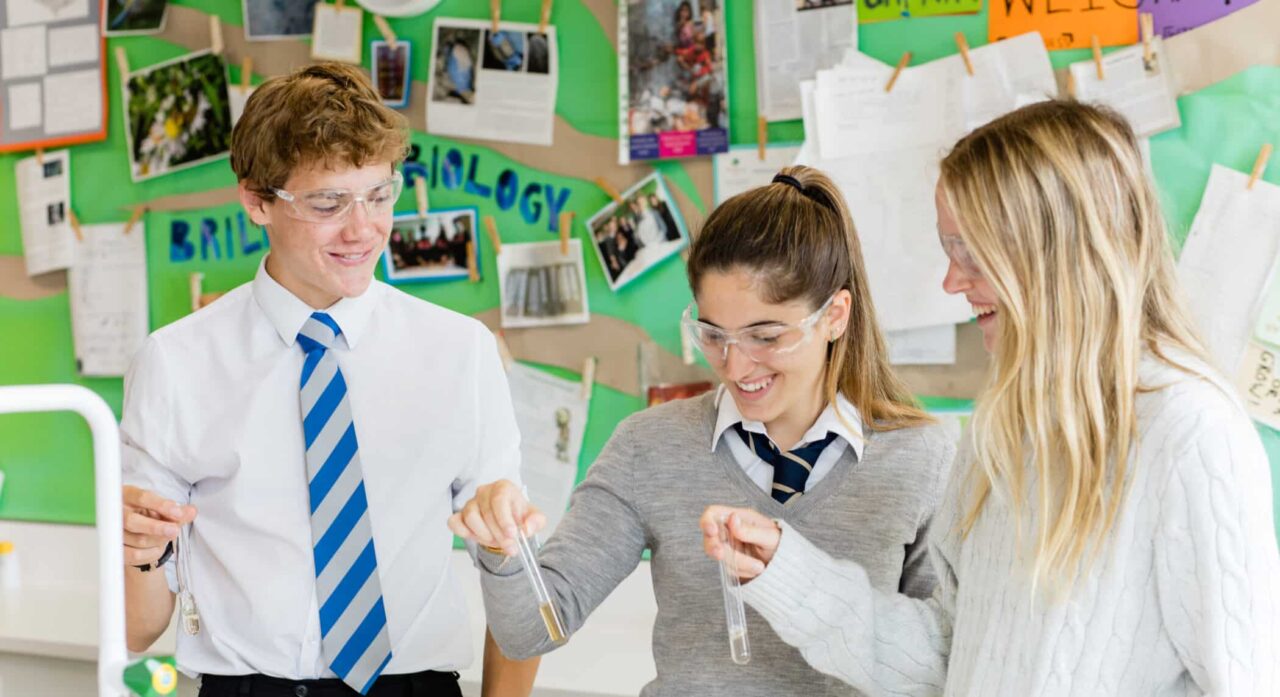Teacher engagement in research and development work is organised in relation to the following themes: wellbeing and flourishing, character education, learning to learn and digital learning. Our annual journal Innovate shares findings and is published annually.
The Journal of the Institute of Teaching & Learning
Innovate is our annual journal sharing the research and development work of our staff and students. The journal is reflective of our active engagement with research practice, and encourages the development of a teacher and learning culture that is driven by evidence.
Wellbeing and Flourishing
Our research and development in this strand is reflective of our holistic approach to education, in which affective experience and personal, emotional development are just as prominent as aspects traditionally referred to as cognitive or ‘academic’.
Work in this area is helping us to identify strategies we can use to help students become more mindful of themselves and their identity in relation to local and global contexts, and to support our students to find the means to flourish.
We are delighted to be working with Research Schools International’s (RSI) and researchers from the Harvard Human Flourishing Program to carry out research and professional development, on the concept of student flourishing. This research project started in December 2020 and is ongoing. It is helping us to reflect on:
- To what degree our students are flourishing
- Which research-based practices we are using regularly to support students’ flourishing
- Which research-based practices we could implement more often to further support students’ flourishing.
In October 2023 we held the ITL Supporting Flourishing in Schools conference. This was an inspiring and practical event for teachers, school leaders, education professionals and practitioners. It gave insight into pedagogical research and provided interactive workshops from leading thinkers on the topic of practices to promote flourishing in schools.
These are some examples of projects in our wellbeing strand, described in articles for Innovate:
- Research-based activities promoting flourishing at Sevenoaks School, by Dr Christina Hinton and Ben Hill
- What does it mean to flourish? Student research fellow reflections
- UNESCO on human flourishing and the aims of education, by Dr Jonathan Beale
- Education networks and educational flourishing, by Cat Davison
- The benefits of yoga in a school setting, by Eva Coddington
- The association between teachers’ leadership style and student performance, by Dr Paul Parham

Character Education
Character education focuses attention on the ways in which students’ qualities as intellectually curious, responsible, compassionate human beings can be nurtured. Projects in this area are exploring ways in which character education can be successfully delivered and embedded through the curriculum.
These are some examples of character education projects, described in articles for Innovate:
Learning to Learn
Our Learning to Learn research strand is concerned with the diverse initiatives that encourage students to be more aware of themselves as independent learners. Projects in this strand are focusing on areas such as: feedback strategies; self-reflection; critical thinking; discussion-based learning; formative assessment; metacognition and teaching for mastery.
Examples of projects in this strand include:
- Learning to listen: improving listening skills in modern languages and beyond, by Dr Fabienne Cheung
- What is Cognitive Load Theory?, by Elen Harris
- Experimenting with the Harkness Discussion Method, by Isla Phillips-Ewen
- Talk about teaching and learning, by Mark Beverley
- The only stupid question is the one never asked, by Hélène Bonsall

Digital Learning
Digital Learning examines the many and varied means through which meaningful learning can be supported through the use of digital technology.
Inward-facing research and development projects in this strand have been very much concerned with the learning impact of portable digital devices in the classroom. In a more outward-facing capacity, our Global Classroom initiative seeks to bring together students and teachers from all over the world to interact, teach, share and learn – developing partnerships between students across the globe via different online learning platforms.
Examples of work in this area include:



